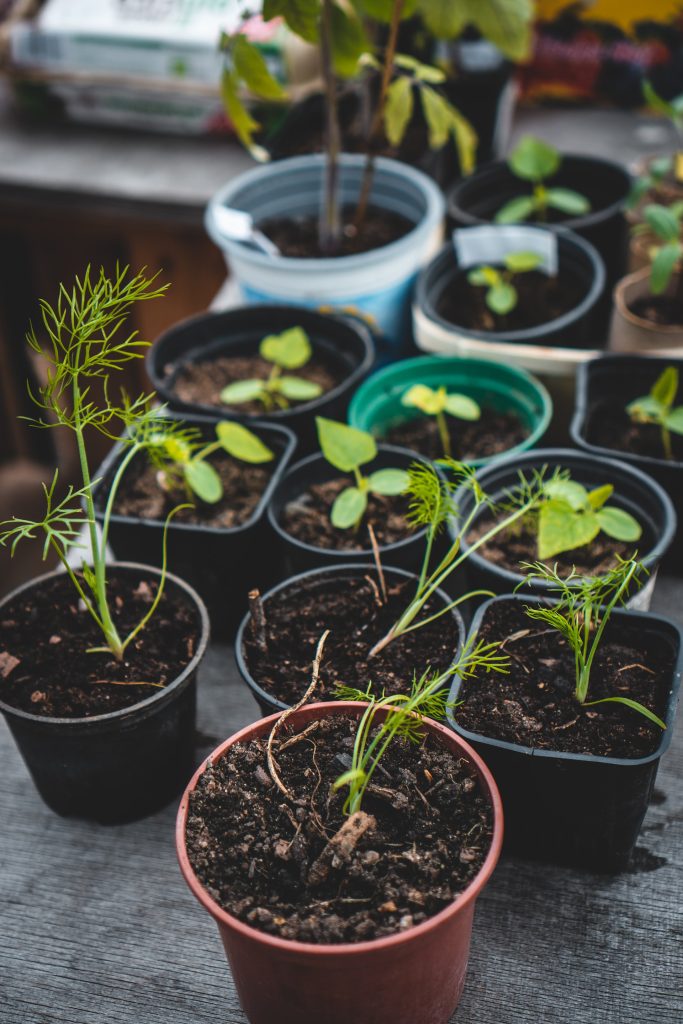Yes, plastic containers are safe for gardening. They are made from a durable material that is resistant to cracking and breaking. Plus, plastic containers do not absorb moisture like other materials, so they can help keep your plants healthy and hydrated.
If you’re like most gardeners, you probably have a stash of plastic containers that you’ve saved from previous purchases of plants. But are these containers safe to use for your gardening projects? The short answer is yes, plastic containers are safe for gardening.
However, there are a few things to keep in mind when using them. First, make sure the container is clean before using it. Any dirt or debris that’s on the container can transfer to your plants and cause problems.
If possible, sterilize the container with boiling water or a diluted bleach solution before using it. Second, be sure to punch holes in the bottom of the container for drainage. Otherwise, your plants could end up sitting in water and developing root rot.
Finally, remember that plastic containers can get very hot in direct sunlight. So if you’re growing heat-loving plants like tomatoes, peppers, or eggplants, be sure to place them in a spot where they’ll get some afternoon shade. Overall, plastic containers are perfectly safe for gardening as long as you take a few precautions.
They’re an inexpensive way to get started in gardening, and they can be reused many times over. Just be sure to clean them well and provide adequate drainage for your plants.
What You Need To Know Before Growing In Plastic Containers, Vegetable Container Gardening RAISED BED
What Containers are Safe to Grow Vegetables?
Assuming you are talking about types of containers to grow vegetables in, here are a few options:
1. Wooden planters: these can be made of cedar or redwood and are a good option for vegetables that need a lot of drainage, like tomatoes. They will last several years with proper care.
2. Stone or concrete planters: these are durable and also provide good drainage, but can be expensive. They are a good option for larger vegetables or those that you want to keep for many years.
3. Plastic pots: these are the most inexpensive option and come in a variety of sizes. They don’t provide as much drainage as the other options, so make sure to choose one with large holes in the bottom and/or set it on top of a saucer or tray to catch water runoff.
Is Plastic Toxic to Plants?
Plastic is not toxic to plants. In fact, plastic is often used in gardening and agriculture because it is durable and can help protect plants from pests and the elements. However, plastic does break down over time and can release chemicals that can be harmful to plants if they are exposed to them for extended periods of time.

Is It Safe to Grow Herbs in Plastic Containers?
There’s no definitive answer to this question since it depends on a number of factors, including the type of plastic container you’re using and the herb you’re growing. Some plastics are more durable than others and may be more resistant to leaching chemicals into your plants. Likewise, some herbs are more sensitive to chemicals than others.
So, if you’re concerned about safety, it’s best to do some research on the specific materials you’re using and the plant you’re growing. In general, though, it’s probably safe to grow most herbs in plastic containers as long as they’re not exposed to direct sunlight for too long. Sunlight can cause plastic containers to break down over time and release harmful chemicals into your plants.
If possible, choose a spot for your herb garden that gets some indirect sunlight so your plants can stay healthy without being exposed to too much heat or UV rays.
Which Plastics are Safe for Gardening?
When it comes to plastics and gardening, there are a few things to keep in mind. First, avoid using any plastic that has been used for food storage, as it may contain harmful chemicals that can leach into the soil. Second, only use plastic containers that are specifically labeled as safe for gardening.
These will typically be made of HDPE (high density polyethylene), which is a durable and non-toxic material. Finally, avoid putting plastic containers directly on the ground, as this can increase the risk of leaching. If you follow these simple guidelines, you can safely use plastics in your garden without worry!
Is It Safe to Grow Vegetables in Plastic Containers?
When it comes to growing vegetables in plastic containers, there are mixed opinions on whether or not it is safe. Some say that the chemicals in the plastic can leach into the soil and contaminate the plants. Others argue that as long as the containers are clean and well-maintained, there is no need to worry.
So, what is the verdict? Is it safe to grow vegetables in plastic containers? The truth is, there is no definitive answer.
It really depends on a number of factors, including the type of plastic used, how well the container is made, and how well it is maintained. That being said, if you are concerned about potential contamination, you may want to consider using another type of container, such as glass or ceramic.
Using Plastic Bins As Planters
Gardening is a fun and rewarding hobby, but it can also be a lot of work. If you’re looking for a way to make your gardening life easier, consider using plastic bins as planters. Here are some benefits of using plastic bins as planters:
1. They’re lightweight.
Plastic bins are much lighter than ceramic or concrete pots, so they’re easy to move around when you’re planting or rearranging your garden.
2. They’re durable.
Plastic bins are weather-resistant and won’t crack or break like clay pots can.
3. They’re inexpensive.
You can find plastic bins at most hardware stores for very reasonable prices.
4. They have drainage holes built in.
This is a big advantage over other types of pots, which often don’t have drainage holes and can lead to root rot if not properly cared for.
5 . They come in a variety of sizes and shapes.
Whether you need a small pot for a succulent or a large one for a tomato plant, you’ll be able to find just the right size bin at your local store.
Do Plastic Containers Leach into Soil?
It is a common misconception that plastic containers leach chemicals into the soil. While it is true that some plastics can release chemicals into the environment, this typically only occurs when the plastic is exposed to high temperatures or UV light. When buried in soil, plastics are not exposed to these conditions and therefore do not leach chemicals into the ground.
Conclusion
If you’re thinking about using plastic containers for your gardening, you might be wondering if they’re safe. The short answer is yes, plastic containers are perfectly safe to use for gardening. However, there are a few things to keep in mind when using them.
First of all, it’s important to make sure that your plastic containers are made from food-grade materials. This will ensure that they’re free of toxins and chemicals that could potentially harm your plants. Secondly, it’s a good idea to avoid using plastic containers that have been used for other purposes, such as storing chemicals or paint.
These can also leach toxins into the soil and eventually into your plants. Other than that, there’s really no need to worry about using plastic containers for gardening. They’re inexpensive, lightweight, and easy to find – making them a great option for anyone looking for an alternative to traditional pots and planters.
